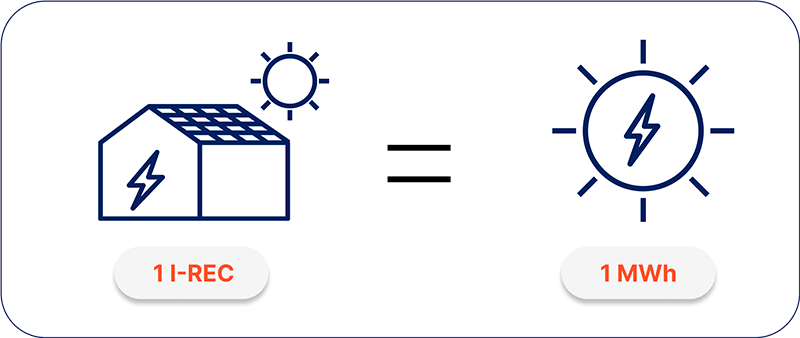RECs/CERs projects
I-REC participant
As an I-REC participants, we offer comprehensive support to help your organization navigate the complex process of I-REC (International Renewable Energy Certificate) registration. Our team of experts is dedicated to ensuring your compliance with international standards and facilitating the procurement and trading of renewable energy certificates.
International Renewable Energy Certificate (I-REC) is a type of Energy Attribute Certificate (EAC) used to verify the amount of electricity generated from renewable energy sources.
Over 95% of internationally traded RECs are I-RECs.

BENEFITS OF
OWNING AN I-REC:
Having I-REC helps businesses demonstrate their commitments to ESG practices and sustainable development, attracting investors and enhancing competitiveness in the market.
I-REC ISSUANCE PROCESS
Contact Us
CERs (Certified Emission Reductions)
CERs (or Carbon credits) are the general term for tradable credits or permits representing 1 ton of carbon dioxide (CO2) or the mass of another greenhouse gas equivalent to 1 ton of CO2 (tCO2e). Trading CO2 emissions or carbon trading on the market is done through credits.
4 CRITERIAS
Real and Measurable
realized and not just planned, and quantified via an established methodology using conservative assumptions
Permanent & not reversed
this pertains to projects that have reversibility risk such as forestry projects that can be damaged by fire, logging, or disease. Mitigation and mechanism must be developed to compensate for any reversals.
Additional
would not have been realized if the project had not been carried out, and the project itself would not have been developed without the revenues from the sale of carbon credits
Independently verified
verified by an accredited, independent third party







